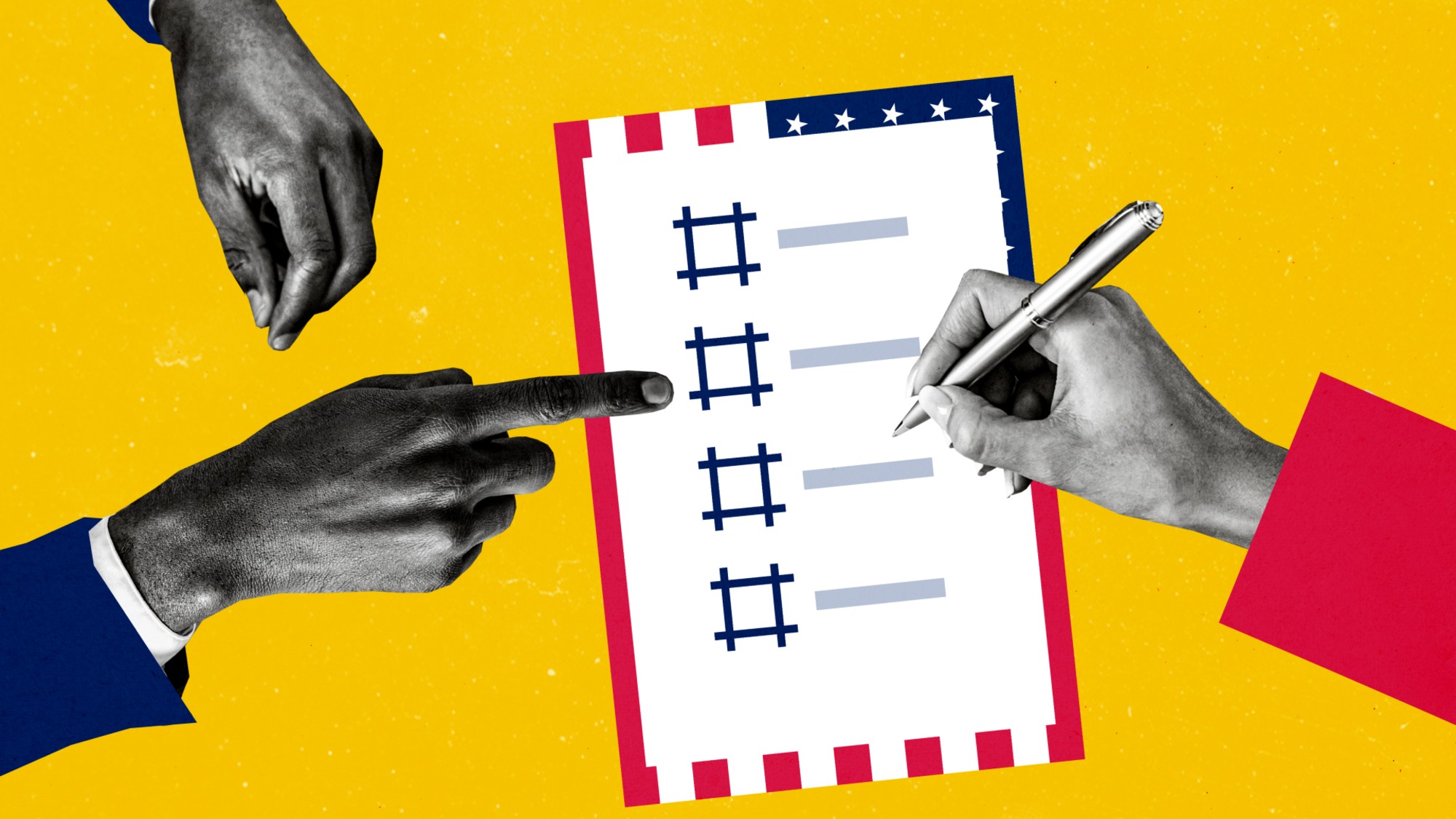What's at stake in the Mahmoud Khalil deportation fight?
Vague accusations and First Amendment concerns


A free daily email with the biggest news stories of the day – and the best features from TheWeek.com
You are now subscribed
Your newsletter sign-up was successful
The Trump administration moved this week to deport Mahmoud Khalil, a recent Columbia University graduate of Palestinian heritage who once led campus protests against Israel's war in Gaza. Critics say Khalil's arrest is a threat to the First Amendment and to the rights of Americans everywhere.
Khalil is a lawful permanent resident — a green card holder — who "isn't charged with a crime," said NPR. The Trump administration instead said he should be deported for protest activities that it "equates with antisemitism and support for terrorism" committed by Hamas. One obstacle, however, is that legal experts say green card holders have free speech rights. The Constitution "does not distinguish between citizens and non-citizens" when it comes to the First Amendment, said Georgetown Law professor David Cole. If the government cannot punish a citizen for speech, it also cannot "deport a foreign national for their speech."
The administration has "invoked an obscure statute" in its effort to expel Khalil, said The New York Times. The Immigration and Nationality Act of 1952 gives Secretary of State Marco Rubio "sweeping power" to deport foreigners that authorities believe pose "potentially serious adverse foreign policy consequences for the United States."
The Week
Escape your echo chamber. Get the facts behind the news, plus analysis from multiple perspectives.

Sign up for The Week's Free Newsletters
From our morning news briefing to a weekly Good News Newsletter, get the best of The Week delivered directly to your inbox.
From our morning news briefing to a weekly Good News Newsletter, get the best of The Week delivered directly to your inbox.
'Mixed signals' about justification
The government has not presented "any indication of violent or obviously criminal behavior" by Khalil, said Andrew C. McCarthy at the National Review. However, green card holders have no right to "join with groups that endorse or espouse terrorist activity." If the federal government can prove that Khalil was in a Columbia University group that "endorsed or espoused Hamas' atrocities against Israel," it should be able to deport him, McCarthy said.
The Trump administration has offered "mixed signals" about its justification, said Aaron Blake at The Washington Post. Officials have vaguely suggested that Khalil committed a crime, while other times they have suggested the deportation effort is part of a broader push against "antisemitism and anti-Americanism." Without a detailed accusation, the "risk is that all kinds of speech could qualify" legal permanent residents for punishment, Blake said. Khalil's deportation "could be one of the most important free speech cases in recent American history."
A threat to the First Amendment?
President Donald Trump said the possible deportation is the first "of many to come," said The Associated Press. The government "will find, apprehend, and deport these terrorist sympathizers from our country," the president added on social media. But a federal judge on Monday ordered officials to keep Khalil in the United States pending a legal challenge to the expulsion.
The arrest of Khalil is a "trial run," said Adam Serwer at The Atlantic. The president's comments on the case suggest he is "using the power of the state to silence people who express political views that Trump dislikes." Such threats to the First Amendment will not end with Khalil, nor with other noncitizens. If the government can detain an individual because it does not like their politics, "then no one is safe."
A free daily email with the biggest news stories of the day – and the best features from TheWeek.com
Joel Mathis is a writer with 30 years of newspaper and online journalism experience. His work also regularly appears in National Geographic and The Kansas City Star. His awards include best online commentary at the Online News Association and (twice) at the City and Regional Magazine Association.
-
 The Olympic timekeepers keeping the Games on track
The Olympic timekeepers keeping the Games on trackUnder the Radar Swiss watchmaking giant Omega has been at the finish line of every Olympic Games for nearly 100 years
-
 Will increasing tensions with Iran boil over into war?
Will increasing tensions with Iran boil over into war?Today’s Big Question President Donald Trump has recently been threatening the country
-
 Corruption: The spy sheikh and the president
Corruption: The spy sheikh and the presidentFeature Trump is at the center of another scandal
-
 Judge orders Washington slavery exhibit restored
Judge orders Washington slavery exhibit restoredSpeed Read The Trump administration took down displays about slavery at the President’s House Site in Philadelphia
-
 How are Democrats turning DOJ lemons into partisan lemonade?
How are Democrats turning DOJ lemons into partisan lemonade?TODAY’S BIG QUESTION As the Trump administration continues to try — and fail — at indicting its political enemies, Democratic lawmakers have begun seizing the moment for themselves
-
 ICE eyes new targets post-Minnesota retreat
ICE eyes new targets post-Minnesota retreatIn the Spotlight Several cities are reportedly on ICE’s list for immigration crackdowns
-
 Judge blocks Hegseth from punishing Kelly over video
Judge blocks Hegseth from punishing Kelly over videoSpeed Read Defense Secretary Pete Hegseth pushed for the senator to be demoted over a video in which he reminds military officials they should refuse illegal orders
-
 How did ‘wine moms’ become the face of anti-ICE protests?
How did ‘wine moms’ become the face of anti-ICE protests?Today’s Big Question Women lead the resistance to Trump’s deportations
-
 Judge blocks Trump suit for Michigan voter rolls
Judge blocks Trump suit for Michigan voter rollsSpeed Read A Trump-appointed federal judge rejected the administration’s demand for voters’ personal data
-
 Trump’s plan to ‘nationalize’ US elections
Trump’s plan to ‘nationalize’ US electionsTalking Points States oversee voting. Will Republicans take over?
-
 Will Trump’s oil push end Cuba’s Communist regime?
Will Trump’s oil push end Cuba’s Communist regime?Today’s Big Question Havana’s economy is teetering
